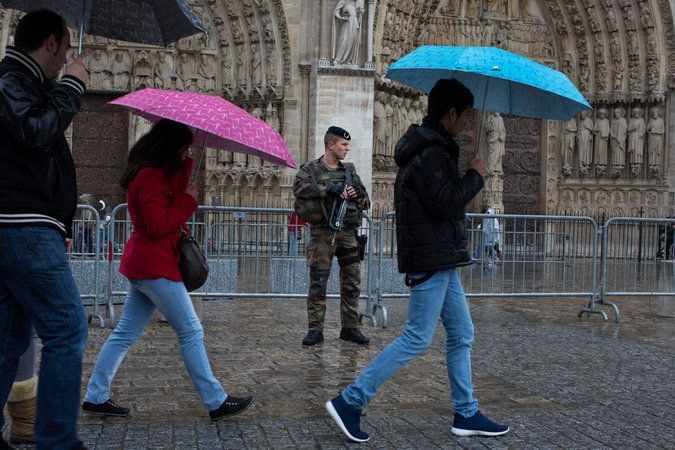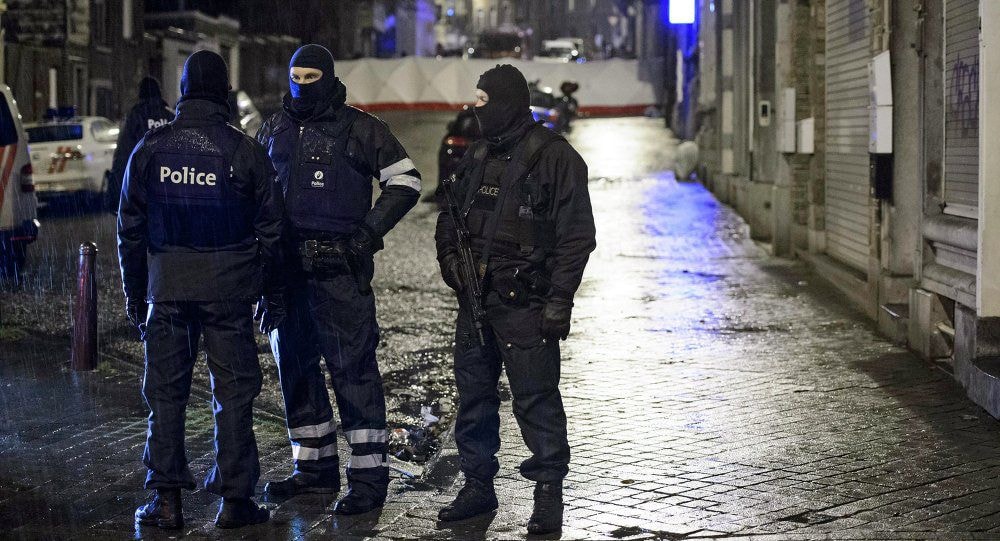Public security or individual freedom?
(Baonghean) - After the tragedy of November 13 in Paris, France and Belgium on November 19 urged the strengthening of security forces, inadvertently pushing Europe deeper into the debate that broke out in the US after September 11: how to balance anti-terrorism efforts with people's freedoms.
 |
| After the 9/11 event, a debate broke out in the US about security and personal privacy. Photo: Internet. |
As people remain in panic and political pressure continues to increase, the governments of France and Belgium have declared that at this time, protecting citizens' safety is their top priority.
European countries such as France, which has suffered several attacks this year; Belgium, where many of the Paris attackers lived; and Britain, which has thwarted several attack plots in recent years, are all strengthening their governments, while debate continues over controls on passport-free travel within the continent.
Yet in the days after the Paris attacks, there has been little criticism of the trade-offs made by the hardest-hit countries, France and Belgium, to quickly impose new security measures and adjust legal and constitutional structures to give governments more flexibility to respond to threats.
Finding the right balance between individual rights and counterterrorism measures has become increasingly difficult in the 14 years since al-Qaeda attacked the United States, in part because of the spread of digital technology and the privacy concerns that have accompanied it.
 |
| Soldiers stand guard at Notre Dame Cathedral in Paris on November 19 amid heightened security following the November 13 terrorist attacks that killed 129 people. Photo: NYTimes. |
As Prime Minister Manuel Valls warned on November 19 of the possibility of attacks using chemical and biological weapons, the French National Assembly voted to extend the state of emergency for another three months, with 551 votes in favor, just six against and one abstention.
Obviously the state of emergency will somewhat restrict citizens' freedoms, but ultimately, as Mr. Valls said, this is an opportunity for France to restore order, and then gradually restore the temporarily restricted rights in full.
In Belgium, Prime Minister Charles Michel affirmed that he will quickly change the law to facilitate the arrest, trial and punishment of suspected terrorists operating in the country, increasing the detention time of suspects from 24 hours to 72 hours.
Other elements of the Belgian plan include banning the sale of unregistered SIM cards that could help terrorists hide their identities, removing restrictions on the hours police are allowed to conduct raids on terror suspects, arresting jihadists returning from abroad, forcing anyone who poses a potential threat to wear an electronic bracelet, etc.
However, civil liberties advocates warn that the government is going too far, and urge European countries to be especially careful that the measures being implemented do not target Muslim citizens, causing discrimination and creating obstacles in all areas of life.
 |
| Belgian special police force. Photo: Reuters. |
On November 20, the French Senate approved a bill to expand the powers of a 1955 emergency law, allowing the disbanding of extremist groups that run mosques and other places of worship; the blocking of websites that promote terrorism; and the use of electronic identification devices for people under house arrest.
During a state of emergency, authorities are allowed to conduct raids and arrests without prior warrants. However, when arresting people or seizing property, the normal legal system applies.
In the United States, even after 9/11, raids on a similar scale drew criticism, but in France, just 10 months after Islamist extremists attacked the offices of Charlie Hebdo magazine and a Jewish supermarket, the public generally accepted the crackdown as necessary.
As in France, many Belgians say that despite the drastic measures, they are willing to give up some personal freedoms in exchange for security.
Bart Tommelein, the head of privacy in Belgium, insisted that the privacy restrictions would only apply to terror suspects: “If we talk about terror suspects and people who have committed such crimes, the issue of privacy does not exist. So for those who go to Syria, or return from Syria, that boundary can be erased, they lose this right,” but not for others.
He added that the government does not intend to “put everyone’s information into the database, but will target those suspected of being involved in terrorist activities.” And so, security concerns will not “overwhelm” individual liberties.
Thu Giang
(According to NYTimes)
| RELATED NEWS |
|---|

